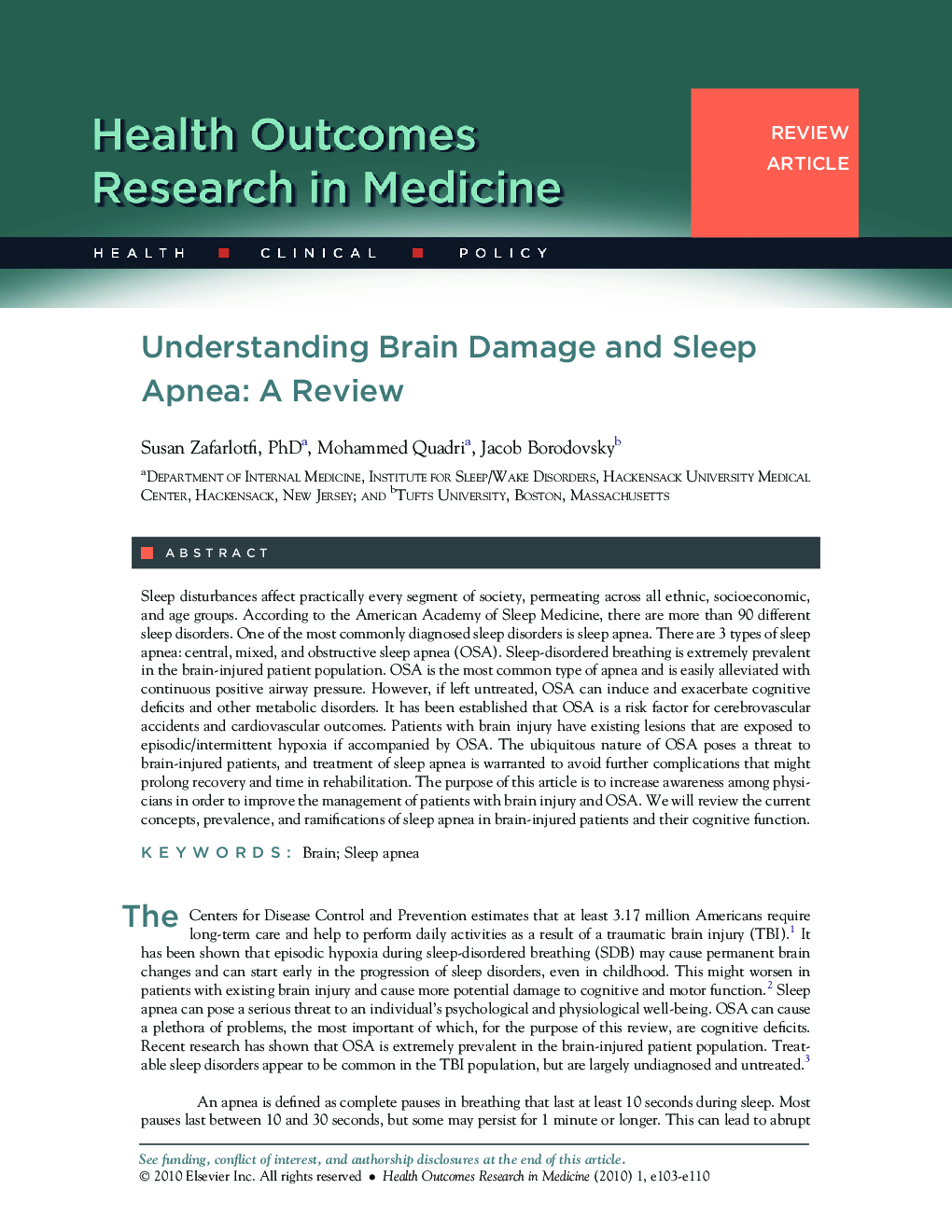| Article ID | Journal | Published Year | Pages | File Type |
|---|---|---|---|---|
| 1074876 | Health Outcomes Research in Medicine | 2010 | 8 Pages |
Sleep disturbances affect practically every segment of society, permeating across all ethnic, socioeconomic, and age groups. According to the American Academy of Sleep Medicine, there are more than 90 different sleep disorders. One of the most commonly diagnosed sleep disorders is sleep apnea. There are 3 types of sleep apnea: central, mixed, and obstructive sleep apnea (OSA). Sleep-disordered breathing is extremely prevalent in the brain-injured patient population. OSA is the most common type of apnea and is easily alleviated with continuous positive airway pressure. However, if left untreated, OSA can induce and exacerbate cognitive deficits and other metabolic disorders. It has been established that OSA is a risk factor for cerebrovascular accidents and cardiovascular outcomes. Patients with brain injury have existing lesions that are exposed to episodic/intermittent hypoxia if accompanied by OSA. The ubiquitous nature of OSA poses a threat to brain-injured patients, and treatment of sleep apnea is warranted to avoid further complications that might prolong recovery and time in rehabilitation. The purpose of this article is to increase awareness among physicians in order to improve the management of patients with brain injury and OSA. We will review the current concepts, prevalence, and ramifications of sleep apnea in brain-injured patients and their cognitive function.
